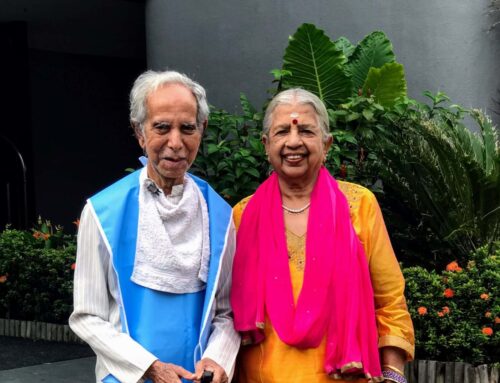Maternal mortality interests me because it seems preventable and is a problem that is at a confluence of medicine, society and culture. I recommend (highly) the latest State of the World’s mothers report.
If giving birth is natural, why do so many mothers die?
Shoba Narayan
April 1, 2014 Updated: April 1, 2014 17:43:00
A small item in the news caught my eye. It is something I track, and something I worry about. The technical term for it is “maternal mortality”: dying while giving birth.
Tribesmen in Pakistan and villagers in Darfur have expressed concern over rising maternal mortality rates (MMR), according to the news report. A high MMR comes about through a complex set of circumstances and they are not all medical. This is why it interests me. After all, women have been giving birth for centuries, well before hospitals were established. My mother still remembers a time when poor women in her village used to retreat behind shrubs, give birth and then come back with babies.
If birthing is so natural, why do women die doing it? Most of us take our wives, daughters and sisters to the best hospitals that we can afford at that critical stage in their lives. In Bangalore, where I now live, a 50-bed boutique hospital called The Cradle could well be transplanted to Palm Beach, Florida in terms of how it looks and the services it offers. Many of my American expatriate friends choose to give birth there rather than go home.
There is no such choice in rural Pakistan, Darfur or Bihar, one of India’s poorest states. A combination of misinformation, malnutrition and poor sanitation stack the odds against pregnant mothers and their newborn babies. Women deliver babies on hay, often in the filthiest part of the house, beside running sewers and clucking chickens, and using overused kitchen blades in lieu of sanitised medical tools. They are poor and hungry to begin with and often feed others in the family instead of themselves.
These women believe that birthing isn’t complicated; they take it for granted as something that their mothers and grandmothers have done, not realising that their health and circumstances are different. Sanitation is an issue. A burgeoning population means that with many mouths to feed, nutrition is always an issue.
So why should we care? And what can be done? One method that the Indian government is spearheading involves Accredited Social Health Activists or Asha workers. These are trained women who belong to the villages where they work. They aren’t doctors; they aren’t even nurses, but they are high-potential front line service providers. They understand local culture and dynamics and are able to translate standard scientific messages in a way that makes sense to local people, according to Muhammad Musa, the CEO of Care India, an NGO. They know what messages will work and what won’t, which is key for behaviour-change communication.
Asha workers liaise between rural women and the government and have undergone training to deliver key messages. The ones in Bihar carry mobile phones to keep track of their clients, and picture booklets that explain nutrition, sanitation and health. One page has a drawing of a nursing mother with a tick beside it to encourage breastfeeding and skin contact. Another shows a pregnant mother with a caption telling women to take the iron tablets that are distributed free by the government. There are messages about vaccination, nutrition and family planning: “Space out your children. Good for family. Good for child.”
Other countries take different approaches. Pakistani health experts have called for religious leaders and elders to come forward and help pregnant women deliver in safe and healthy situations. In Sudan, where MMR escalated by 94 per cent last year, the focus is on malnutrition and improving the health of a woman before she gets pregnant.
As has been stressed by the Save the Children Fund’s State of the World’s Mothers report 2014, helping a pregnant mother deliver a baby is the most natural thing in the world. Governments, NGOs and village elders ought to work together to make it this way.
Shoba Narayan is the author of Return to India: a memoir.



Maternal mortality also includes death during pregnancy and for the first six weeks after delivery provided the deaths are related to causes around pregnancy, but does not include death due to unrelated causes even if the mother is pregnant, for example, a road accident. So it has to be addressed from before the woman gets pregnant, during her pregnancy, during her delivery and in the post natal period. So in a sense all the interventions done at primary health care level, for eg., regular antenatal check ups, nutrition supplements, safe delivery practices and regular postnatal check ups all have a role.
Thank you. What I find interesting is the contradiction. On the one hand, pregnant women in India are treated very well with special food and such. Yet, they die giving birth. Hard to square my head around that.
I am not so sure about the special food part .. a. because that practice is probably among the more privileged classes b. there is a lot of misinformation about what is ‘good’ food. I would suspect that a rural woman who has given birth multiple times, particularly to girl babies might not get any special treatment. Often they work in the fields, etc, till they go into labour.
I completely agree. Viewing childbirth as a miracle is an urban luxury??